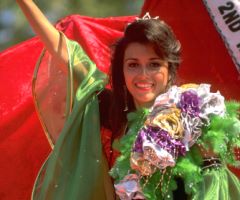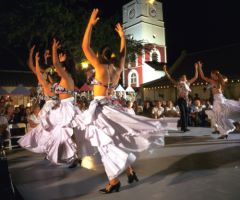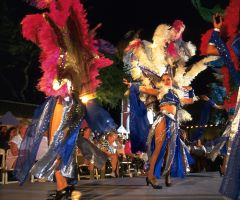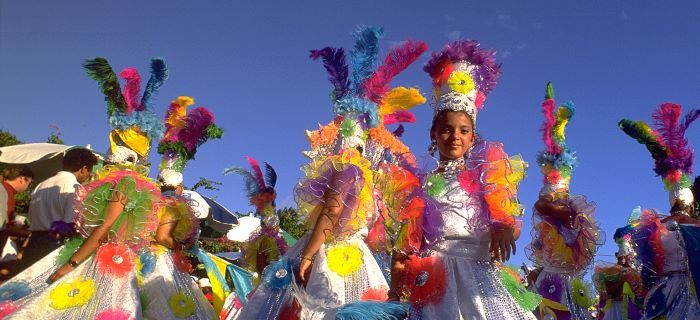
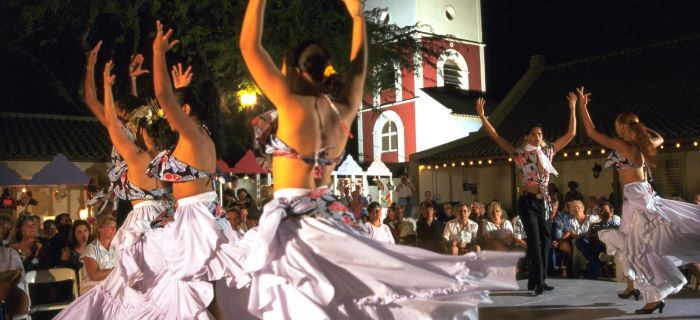
°F
-
°C
more weather...
Live Webcams
Culture of Aruba
Aruba's 100,000 inhabitants reflect it's history of settlement, acquisition, and immigration. The native Aruban population has ethnic roots in Arawak, African, and European peoples, reflected in the local foods, architecture, celebrations, and languages, and you'll find a healthy mix of expatriates, about 15,000, from Europe, the Caribbean, and Latin America working in various industries on our island. Culturally, Aruba has strong ties to Holland, it's colonial occupier and presen-day partner in the Netherlands kingdom. The official languages of the island are Papiamento and Dutch seen on street signs, government documents, and several local newspapers.
English is spoken by most Arubans, particularly those in the tourism business. The island's lingua franca, however, is Papiamento, a lyrical language that evolved from Spanish and Portuguese, Dutch, some French, English, and a smattering of African languages. To the ear papaiamneto sounds a great deal like Spanish, and it's not surprising that Spanish-speaking visitors from Venezuela and other Latin American countries have little problem communicating on the island. The language is thought to have evolved in Curacao during the 16th century, when slaves and their Spanish owners developed common ground in which to communicate. Keeping in mind that spelling varies within the language, and among the islands that use it (Aruba, Bonaire, and Curacao).
The cultural festivities
The cultural festivities of the island are often linked to it's history and background, although some Aruba's music and culture ceremonies are derived from other Caribbean islands. The music you'll hear in hotels and at many of the festivals is calypso, soca, or reggae, often accompanied by the haunting timbre of steel bands. One good way to experience Aruban culture, particularly for the kids, is to visit the weekly Bon Bini Festival that takes place at Fort Zoutman in downtown Oranjestad.
The small cultural show, featuring music, dance and costumes, as well as sampling of the local foods, is held on Tuesday evening. In San Nicolas, a street festival called San Nifete is held on Main St. every Friday evening, featuring music, a talent show, and local crafts and foods.
The religions of Aruba reflect it's faceted history and currents worldliness. You'll find Catholic, Methodist, Seventh-Day Adventist, Baptist, Evangelical, and Jehovah's Witness churches, as well as synagogues and Baha'i Faith house of worship.
